Related Research Articles
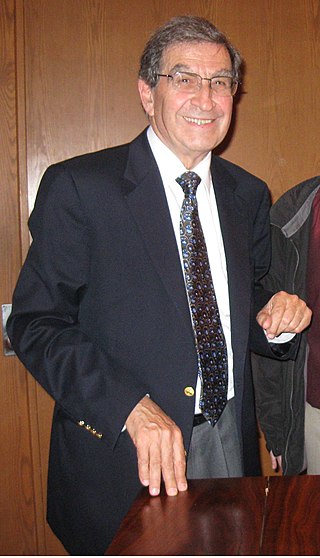
Malcolm Bilson is an American pianist and musicologist specializing in 18th- and 19th-century music. He is the Frederick J. Whiton Professor of Music in Cornell University, Ithaca, New York Bilson is one of the foremost players and teachers of the fortepiano; this is the ancestor of the modern piano and was the instrument used in Haydn, Mozart, and Beethoven's time.
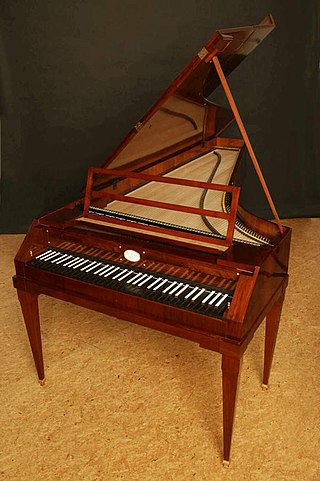
A fortepiano is an early piano. In principle, the word "fortepiano" can designate any piano dating from the invention of the instrument by Bartolomeo Cristofori in 1700 up to the early 19th century. Most typically, however, it is used to refer to the mid-18th to early-19th century instruments, for which composers of the Classical era, such as Haydn, Mozart, and the younger Beethoven, wrote their piano music.

Robert David Levin is an American classical pianist, musicologist, and composer. He was a professor of music at Harvard University from 1994 to 2014 and the artistic director of the Sarasota Music Festival from 2007 to 2017.
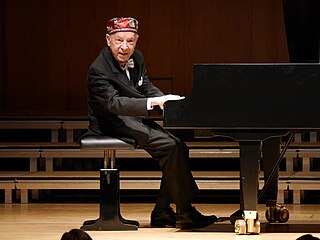
Paul Badura-Skoda was an Austrian pianist.

Freiburger Barockorchester is a German Baroque orchestra founded in 1987, with the mission statement: "to enliven the world of Baroque music with new sounds".
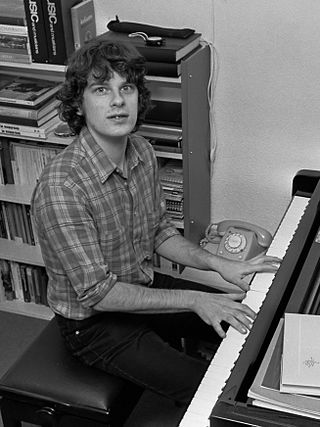
Ronald Brautigam is a Dutch concert pianist, best known for his performances of Beethoven's piano works on the fortepiano.

Steven Lubin is an American pianist and musical scholar. He is best known for his performances on the fortepiano, the early version of the piano.

Wolfgang Amadeus Mozart's concertos for piano and orchestra are numbered from 1 to 27. The first four numbered concertos and three unnumbered concertos are early works that are arrangements of keyboard sonatas by various contemporary composers. Concertos 7 and 10 are compositions for three and two pianos respectively. The remaining twenty-one are original compositions for solo piano and orchestra. These works, many of which Mozart composed for himself to play in the Vienna concert series of 1784–86, held special importance for him.
The Piano Concertos, K. 107 are three keyboard concertos by Wolfgang Amadeus Mozart, based on sonatas by Johann Christian Bach. These sonatas are from J.C. Bach's Op. 5; Mozart turned Sonata No. 2 in D, Sonata No. 3 in G, and Sonata No. 4 in E♭ from this set into the three concertos of K. 107.

Piotr Anderszewski is a Polish pianist and composer.

Jos Van Immerseel is a Belgian harpsichordist, pianist and conductor.
The Diapason d'Or is a recommendation of outstanding (mostly) classical music recordings given by reviewers of Diapason magazine in France, broadly equivalent to "Editor's Choice", "Disc of the Month" in the British Gramophone magazine.
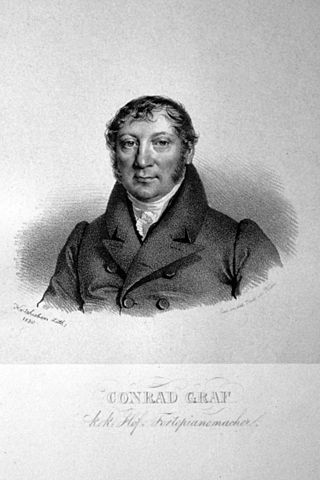
Conrad Graf was an Austrian-German piano maker. His pianos were used by Beethoven, Schubert, Chopin, and Robert and Clara Schumann, among others.

Gabriel Anton Walter was a builder of pianos. The Grove Dictionary of Music and Musicians describes him as "the most famous Viennese piano maker of his time". His pianos were played by many composers including Haydn, Mozart and a very young Beethoven.
Leonard Hokanson was an American pianist who achieved prominence in Europe as a soloist and chamber musician.
Viviana Sofronitsky is a Russian and Canadian classical pianist, born in Moscow. Her father was the Soviet-Russian pianist Vladimir Sofronitsky.

Paul McNulty is a builder of historical pianos, described by the New Grove as "famous for the high standard of [his] instruments." Within the community of builders, McNulty is noted for his efforts to extend the production of historically informed instruments later into history: while he has built many fortepianos in 18th-century style, he has also progressively sought to span the gap between the fortepiano and the fully modern piano that emerged around the last third of the 19th century. The expanding diversity of McNulty's productions has thus helped "provide an opportunity to extend keyboard performing practice to include the piano repertory of the 19th century".
The International Classical Music Awards (ICMA) are music awards first awarded 6 April 2011. ICMA replace the Cannes Classical Awards formerly awarded at MIDEM. The jury consists of music critics of magazines Andante, Crescendo, Fono Forum, Gramofon, Kultura, Musica, Musik & Theater, Opera, Pizzicato, Rondo Classic, Scherzo, with radio stations MDR Kultur (Germany), Orpheus Radio 99.2FM (Russia), Radio 100,7 (Luxembourg), the International Music and Media Centre (IMZ) (Austria), website Resmusica.com (France) and radio Classic (Finland).

Anthony Newman is an American classical musician. While mostly known as an organist, Newman is also a harpsichordist, pianist, composer, conductor, writer, and teacher. He is a specialist in music of the Baroque period, particularly the works of Johann Sebastian Bach, and has collaborated with such noted musicians as Kathleen Battle, Julius Baker, Itzhak Perlman, Eugenia Zukerman, Jean-Pierre Rampal, Leonard Bernstein, Michala Petri, and Wynton Marsalis, for whom he arranged and conducted In Gabriel’s Garden, the most popular classical record of 1996.
Johann Peter Fritz was a piano maker based in Vienna. He was one of Vienna's most distinguished piano makers. His pianos were valued for good quality and melodiousness. It is known, that Giuseppe Verdi was very fond of Johann Fritz's pianos and used the Viennese 6-pedal Fritz piano from the time of Rigoletto in 1851 to Aida in 1871. This exact piano can be seen in the composer's Villa Verdi in Province of Piacenza in Italy.
References
- ↑ "klavier.de: Interview mit Kristian Bezuidenhout". 22 December 2017. Archived from the original on 22 December 2017. Retrieved 18 June 2021.
- ↑ "Artist Encounter: Kristian Bezuidenhout, Fortepiano". Library of Congress. Retrieved 18 June 2021.
- ↑ "Kristian Bezuidenhout | Bios | Miller Theatre at Columbia University". www.millertheatre.com. Retrieved 18 June 2021.
- ↑ "Gesang und Drama | NZZ". 22 December 2017. Archived from the original on 22 December 2017. Retrieved 18 June 2021.